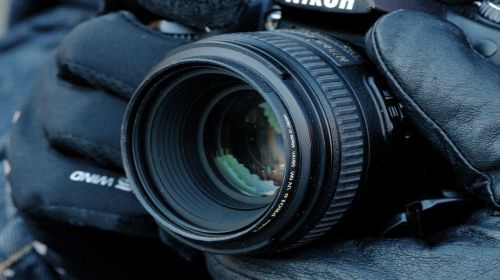
The Guardian last week that Miami Beach is planning on expanding the use of body cameras beyond the police to include “meter maids,” code enforcement officers, and building and fire inspectors. This use of the technology does not make sense.
We’ve always been concerned about the privacy-invading potential of body cameras. As we wrote in our white paper on the technology,
Body cameras have more of a potential to invade privacy than [other] deployments. Police officers enter people’s homes and encounter bystanders, suspects, and victims in a wide variety of sometimes stressful and extreme situations. . . . Perhaps most troubling is that some recordings will be made inside people’s homes, whenever police enter—including in instances of consensual entry… and such things as domestic violence calls.
Balanced against these privacy dangers, however, is the significant need to increase oversight in light of the long record of abusive and illegal behavior by police officers (and other law enforcement agents like Border Patrol officers). Police in specific circumstances are given the authority to shoot to kill, to use brutal force, and to arrest citizens—and all too often, officers abuse those powers.
I am not aware of any cases of building inspectors shooting unarmed civilians in the course of their work. The fact is, these jobs do not come with the frightening powers that police officers possess, and so do not need the same kinds of checks on those powers. Deploying body cameras on these workers would bring all the downsides of police body cams—including in some cases filming inside private homes—without any of the benefits. The balance is completely different.
And as we noted in the white paper, the privacy of the employees should also be factored into the equation:
Just as body cameras can invade the privacy of many innocent citizens, continuous deployment would similarly impinge on police officers when they are sitting in a station house or patrol car shooting the breeze — getting to know each other as humans, discussing precinct politics, etc. We have some sympathy for police on this; continuous recording might feel as stressful and oppressive in those situations as it would for any employee subject to constant recording by their supervisor.
Of course employers, including local governments, have an interest in monitoring their workers to ensure they are doing their jobs properly. But the pervasive monitoring that body-worn cameras bring would create an atmosphere of oppressive surveillance and intimidation. (Again, for police officers their extreme powers and history of abuse justify a different balance—and even so we have called for an extensive set of rules in the deployment of body cams, not just to protect the public’s privacy but also officers’.)
Apparently there has been some problem in Miami Beach with corruption among some of these civilian enforcement employees. But occasional wrongdoing by a few employees does not justify wiring up entire workforces with cameras, especially when those cameras will also be generating video of members of the public. In any case, a top city official told the Guardian that “the basis for the institution of the program is not to catch corruption, it’s to build transparency.” It’s true that “transparency” is a crucial value when it comes to government, but a vague citation of that value is not enough to justify this use of cameras.
I applaud Miami Beach for moving to equip its police officers with cameras (apparently in the face of some union). But they should stick to police.

